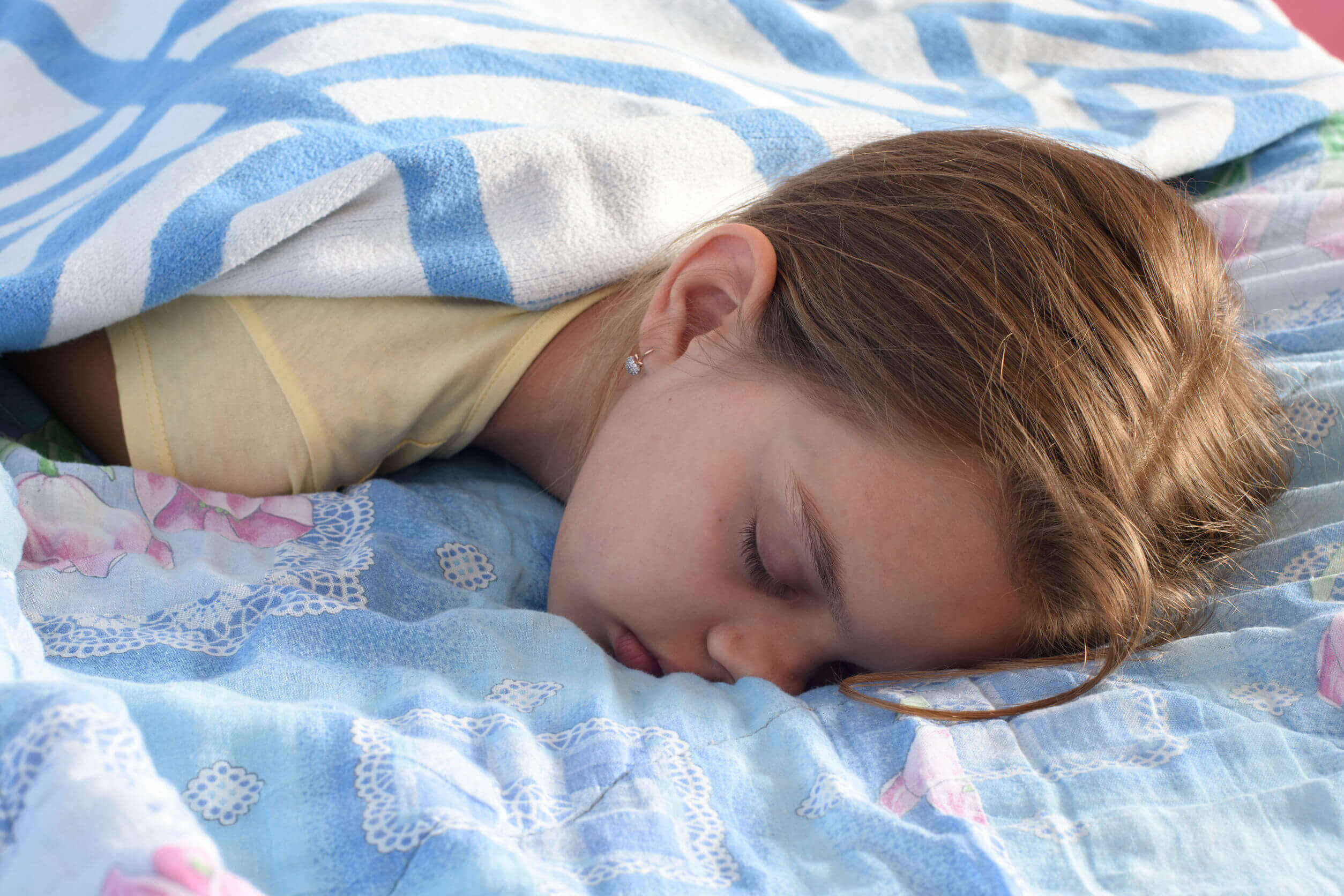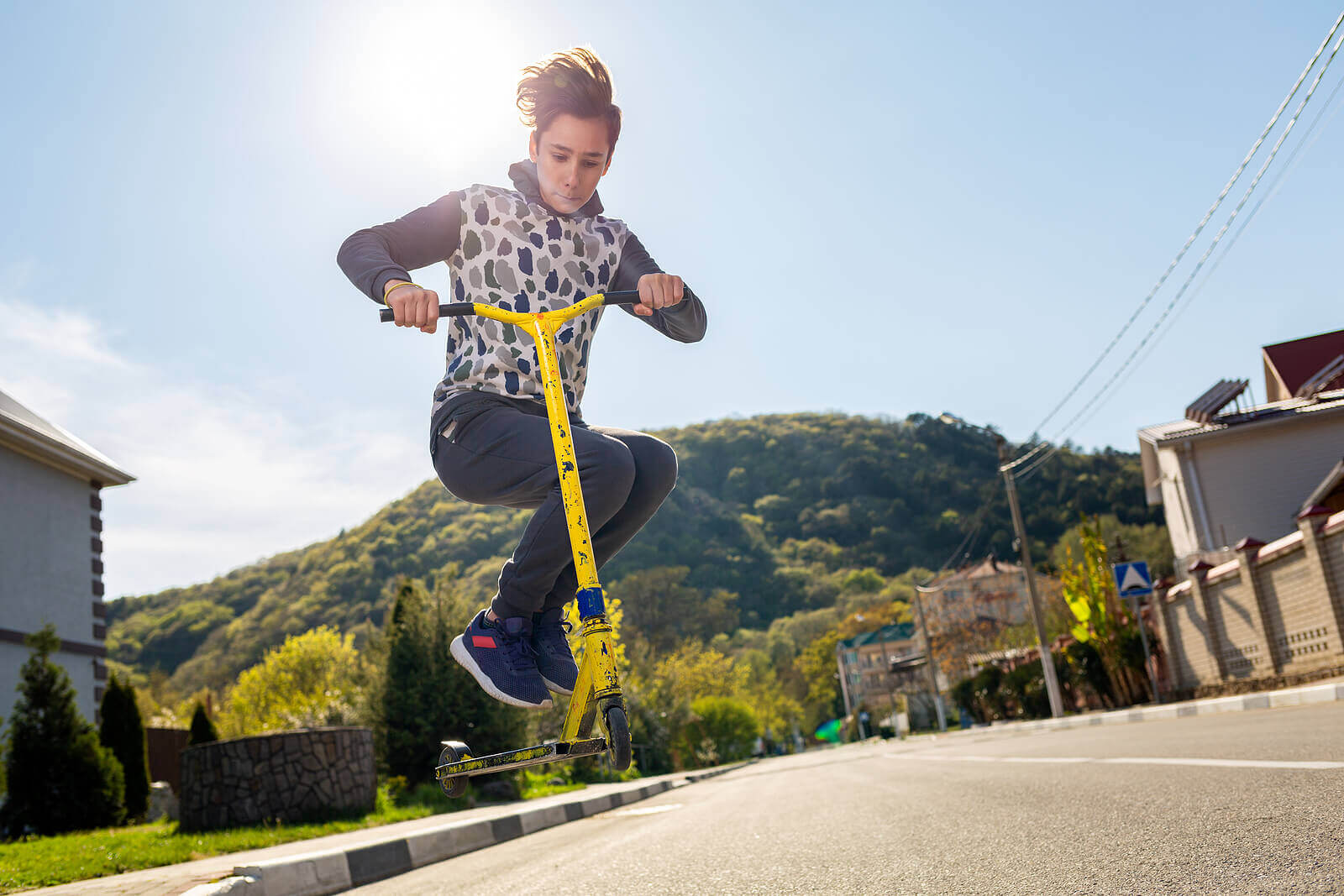Exercise Helps Teens Sleep Better, Study Finds


Written and verified by degree in physical education and sports Andrés Felipe Cardona Lenis
Exercise helps you sleep better and is one of the popular claims when it comes to the benefits of physical activity. But how true is it? And does it help teens sleep better?
During adolescence, your children are a little more complicated. And this is something that’s completely normal if you take into account the series of physiological changes that their body undergoes.
However, during this stage of life, the foundations of some habits are laid that not only influence their immediate development but also their future health.
One of the most important healthy habits is getting adequate sleep. And, according to a scientific study, exercise can help improve the quality of sleep in teens. Do you want to know more?
Why is it important for teens to sleep better?
Before entering fully into the conclusions of this study, we must emphasize the importance of maintaining quality sleep during adolescence.
Generally speaking, a person sleeps well when they get enough sleep at night to allow them to carry out their daytime activities adequately. In addition, this habit helps maintain good health and greatly reduces the risk of getting sick.
Falling asleep without difficulties favors the physical, psychological, and mental performance of your child. Therefore, they can focus better on any activity that takes place during the day and maintain a good level of attention.
On the other hand, if a proper sleep process doesn’t take place, your child’s health can deteriorate progressively. The organs that lack of proper sleep affects the most are the heart, brain, and digestive system.
In addition to the above, lack of rest favors the appearance of episodes of depression in adolescents, as the brain can’t perform its reparative function.
After reading all this, do you need more reasons to understand the importance of sleep in adolescence?

Exercise teens sleep better, what does science say?
Sleeping is one of the most important processes of human beings throughout their lives. In fact, it’s just as important as food and maintaining an active life. For this reason, a great number of studies have looked at this aspect of health over several decades.
According to a recent study published in the journal Scientific Reports, moderate or high-intensity physical activity during adolescence positively influences the nighttime sleep routine.
To arrive at these conclusions, the scientists recruited 417 15-year-old adolescents of both sexes. They placed an accelerometer on each one of their wrists and on the hip to measure the time of sleep and daily physical activity throughout a week of the school year.
Main variables
The most important variables that researchers took into account in this study were moderate to vigorous physical activity, periods of nocturnal sleep, and sedentary behavior during the day.
- Physical activity: They included activities such as walking, running, or doing some kind of sport of any intensity.
- Periods of nocturnal sleep: Researchers considered aspects such as the onset, duration, and the ability to maintain it during the night. They didn’t take into consideration daytime sleep episodes, such as naps.
- Daytime sedentary behavior: Researchers estimated the amount of time in front of screen devices and episodes of little physical activity.
Most important findings of the study
To determine to what extent exercise helps adolescents sleep better, the researchers analyzed the variables of each participant.
In the case of the young people who practiced exercise for more than 1 hour a day, the onset of sleep occurred 18 minutes earlier when they maintained this activity, in comparison to the days without exercise. Likewise, the duration of night rest also increased in relation to this variable, by an average of 10 minutes.
In contrast, the adolescents who were less active showed the opposite results. They went to bed later than the more active youth. And although the duration of their sleep periods was variable, the quality of it was clearly lower.
In addition to the above, the adolescents who started the rest later showed a more sedentary activity pattern the next day. But this difference wasn’t statistically significant.
You may be interested: Children Who Go to Sleep Late Suffer More Disorders
Exercise helps teens sleep better: Motivate your teenager

This study reinforces one of the greatest benefits of exercise in the health of adolescents and shows that maintaining a moderate to vigorously intense activity contributes positively to rest.
Therefore, parents need to help their children to improve their daytime habits constantly encourage them.
Help them to find a sport of their liking in order to exercise and avoid spending many hours in their room or in front of the computer. Remember that the goal is to motivate them without forcing them. Be careful and try to build healthy habits.
Exercise helps you sleep better and is one of the popular claims when it comes to the benefits of physical activity. But how true is it? And does it help teens sleep better?
During adolescence, your children are a little more complicated. And this is something that’s completely normal if you take into account the series of physiological changes that their body undergoes.
However, during this stage of life, the foundations of some habits are laid that not only influence their immediate development but also their future health.
One of the most important healthy habits is getting adequate sleep. And, according to a scientific study, exercise can help improve the quality of sleep in teens. Do you want to know more?
Why is it important for teens to sleep better?
Before entering fully into the conclusions of this study, we must emphasize the importance of maintaining quality sleep during adolescence.
Generally speaking, a person sleeps well when they get enough sleep at night to allow them to carry out their daytime activities adequately. In addition, this habit helps maintain good health and greatly reduces the risk of getting sick.
Falling asleep without difficulties favors the physical, psychological, and mental performance of your child. Therefore, they can focus better on any activity that takes place during the day and maintain a good level of attention.
On the other hand, if a proper sleep process doesn’t take place, your child’s health can deteriorate progressively. The organs that lack of proper sleep affects the most are the heart, brain, and digestive system.
In addition to the above, lack of rest favors the appearance of episodes of depression in adolescents, as the brain can’t perform its reparative function.
After reading all this, do you need more reasons to understand the importance of sleep in adolescence?

Exercise teens sleep better, what does science say?
Sleeping is one of the most important processes of human beings throughout their lives. In fact, it’s just as important as food and maintaining an active life. For this reason, a great number of studies have looked at this aspect of health over several decades.
According to a recent study published in the journal Scientific Reports, moderate or high-intensity physical activity during adolescence positively influences the nighttime sleep routine.
To arrive at these conclusions, the scientists recruited 417 15-year-old adolescents of both sexes. They placed an accelerometer on each one of their wrists and on the hip to measure the time of sleep and daily physical activity throughout a week of the school year.
Main variables
The most important variables that researchers took into account in this study were moderate to vigorous physical activity, periods of nocturnal sleep, and sedentary behavior during the day.
- Physical activity: They included activities such as walking, running, or doing some kind of sport of any intensity.
- Periods of nocturnal sleep: Researchers considered aspects such as the onset, duration, and the ability to maintain it during the night. They didn’t take into consideration daytime sleep episodes, such as naps.
- Daytime sedentary behavior: Researchers estimated the amount of time in front of screen devices and episodes of little physical activity.
Most important findings of the study
To determine to what extent exercise helps adolescents sleep better, the researchers analyzed the variables of each participant.
In the case of the young people who practiced exercise for more than 1 hour a day, the onset of sleep occurred 18 minutes earlier when they maintained this activity, in comparison to the days without exercise. Likewise, the duration of night rest also increased in relation to this variable, by an average of 10 minutes.
In contrast, the adolescents who were less active showed the opposite results. They went to bed later than the more active youth. And although the duration of their sleep periods was variable, the quality of it was clearly lower.
In addition to the above, the adolescents who started the rest later showed a more sedentary activity pattern the next day. But this difference wasn’t statistically significant.
You may be interested: Children Who Go to Sleep Late Suffer More Disorders
Exercise helps teens sleep better: Motivate your teenager

This study reinforces one of the greatest benefits of exercise in the health of adolescents and shows that maintaining a moderate to vigorously intense activity contributes positively to rest.
Therefore, parents need to help their children to improve their daytime habits constantly encourage them.
Help them to find a sport of their liking in order to exercise and avoid spending many hours in their room or in front of the computer. Remember that the goal is to motivate them without forcing them. Be careful and try to build healthy habits.
All cited sources were thoroughly reviewed by our team to ensure their quality, reliability, currency, and validity. The bibliography of this article was considered reliable and of academic or scientific accuracy.
- Maestra Lindsay, Russell T. Nye, Soomi Lee, Nicole G. Nahmod, Sara Mariani, Lauren Hale y Orfeu M. Buxton. (2019). Scientific Reports, artículo número 9. Asociaciones bidireccionales y temporales diarias entre el sueño y la actividad física en adolescentes. https://www.nature.com/articles/s41598-019-44059-9
- Borquez, Pía. (2011). Calidad de sueño, somnolencia diurna y salud autopercibida en estudiantes universitarios. Eureka (Asunción) en Línea, 8(1), 80-90. Recuperado el 29 de setembro de 2021, de http://pepsic.bvsalud.org/scielo.php?script=sci_arttext&pid=S2220-90262011000100009&lng=pt&tlng=es.
This text is provided for informational purposes only and does not replace consultation with a professional. If in doubt, consult your specialist.








